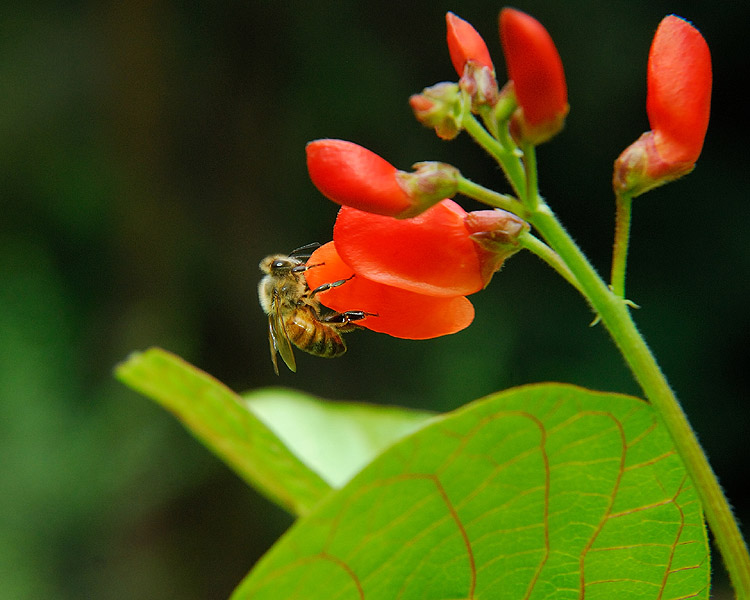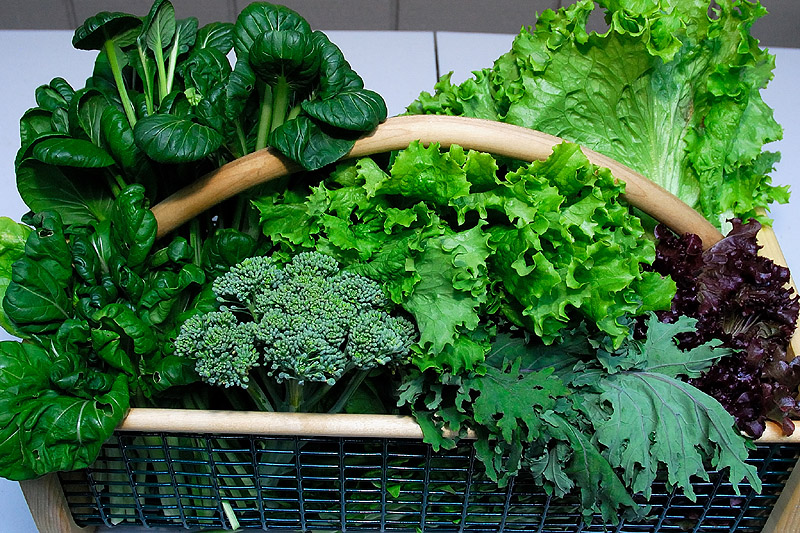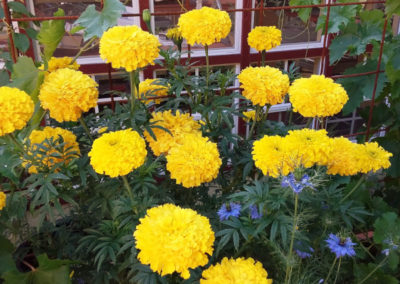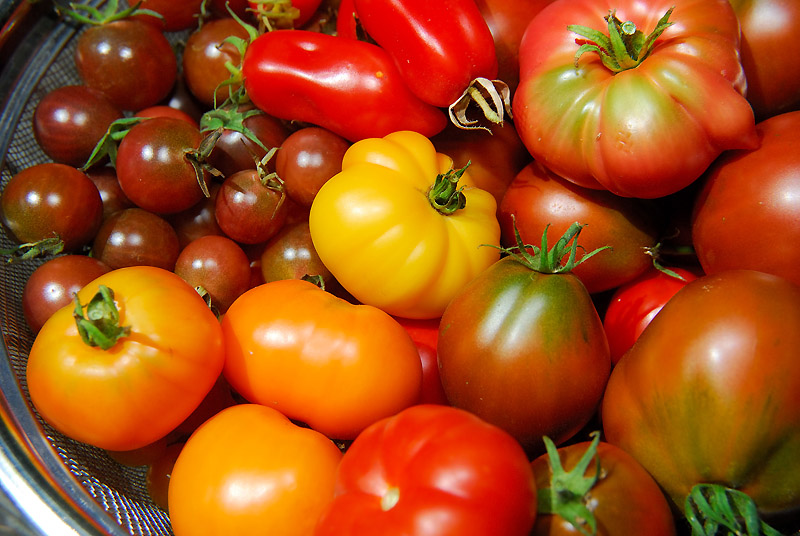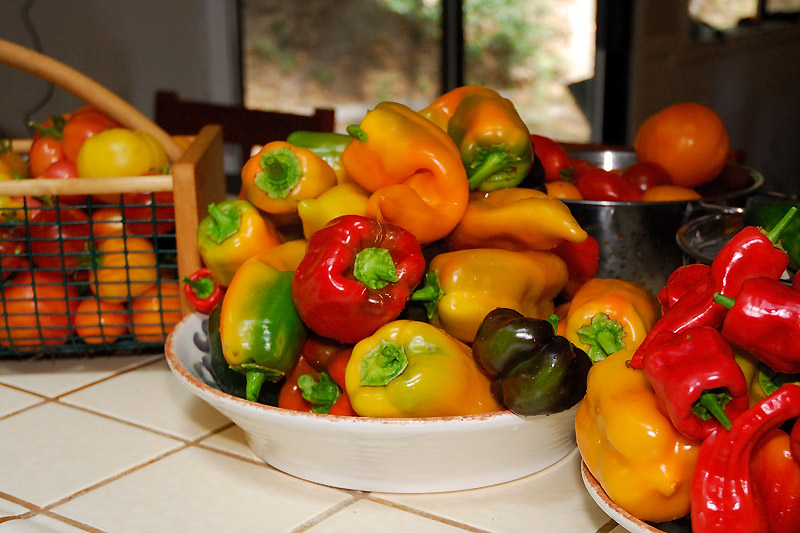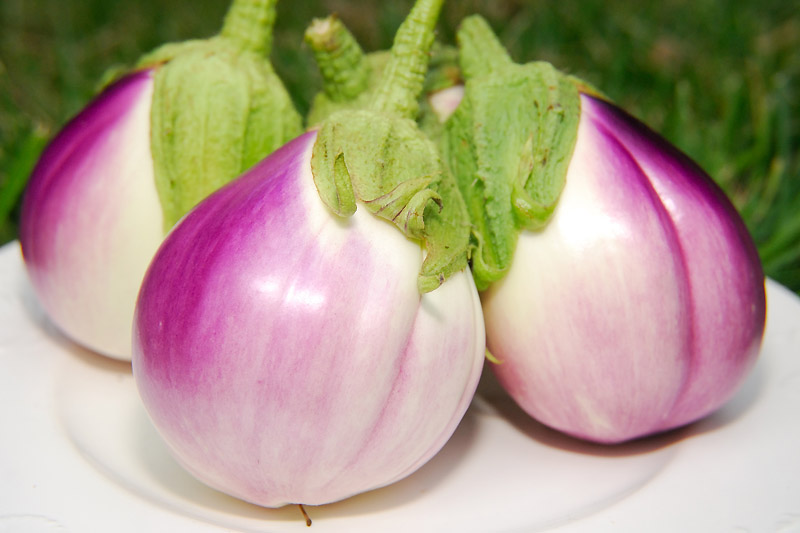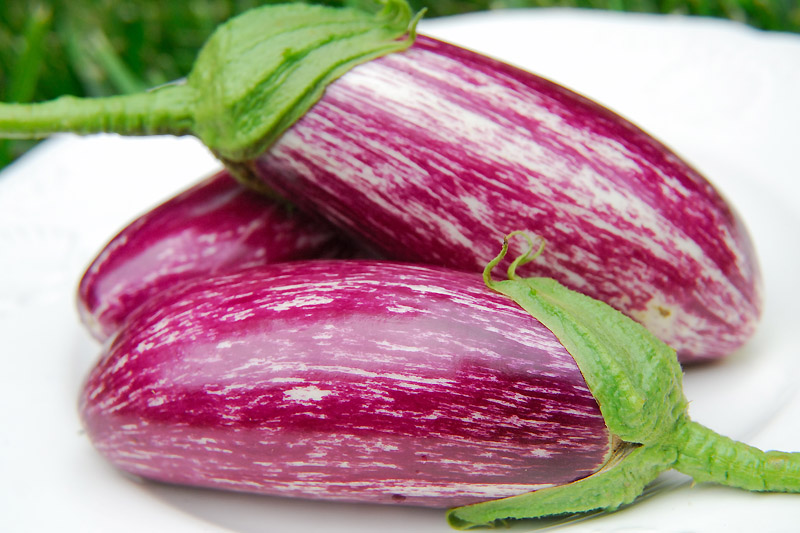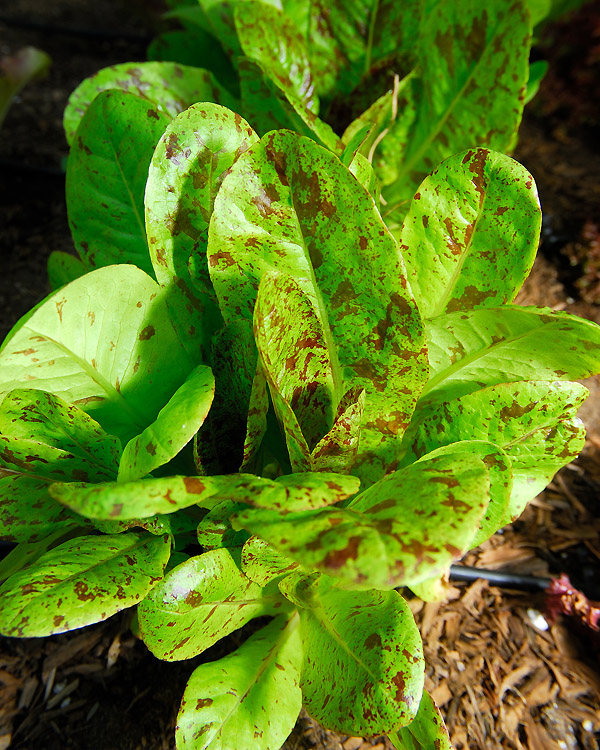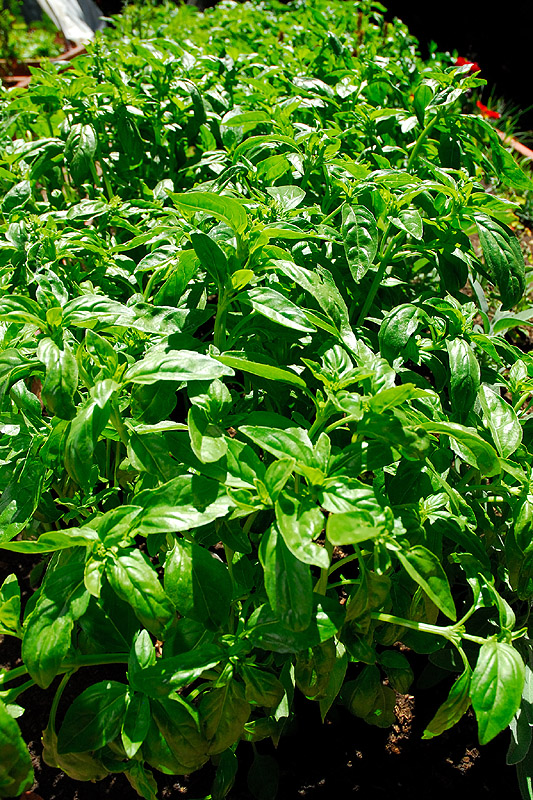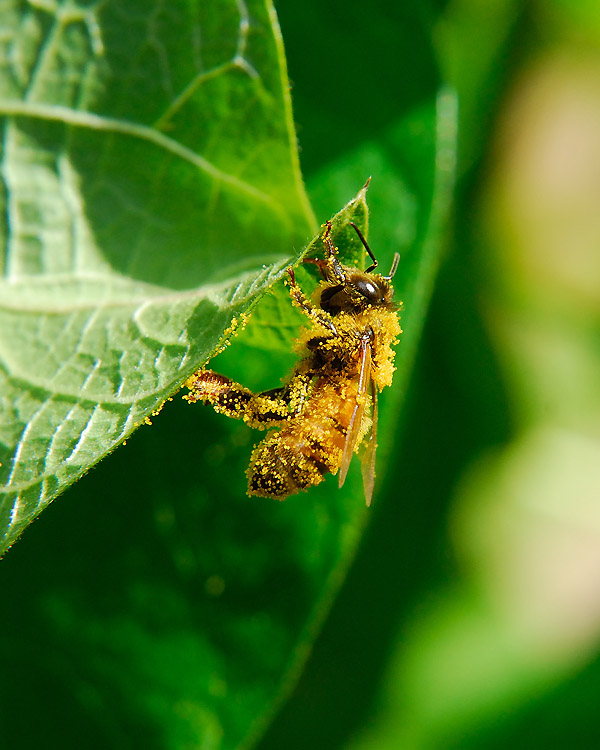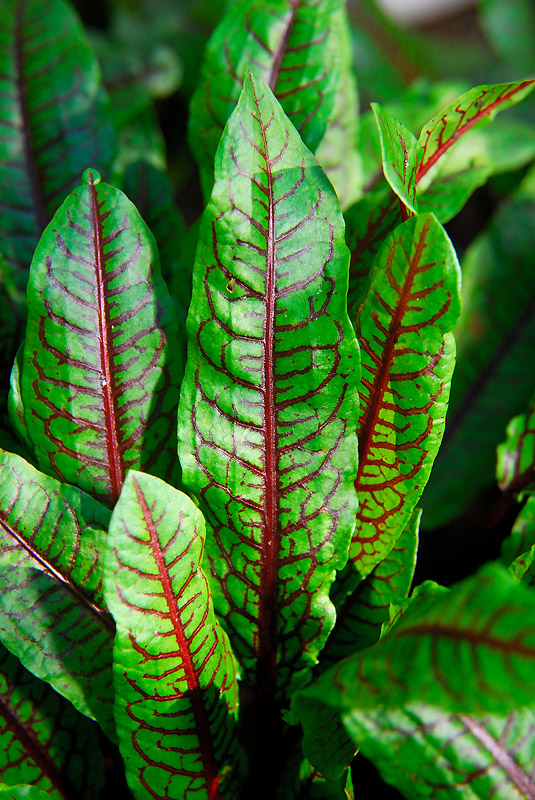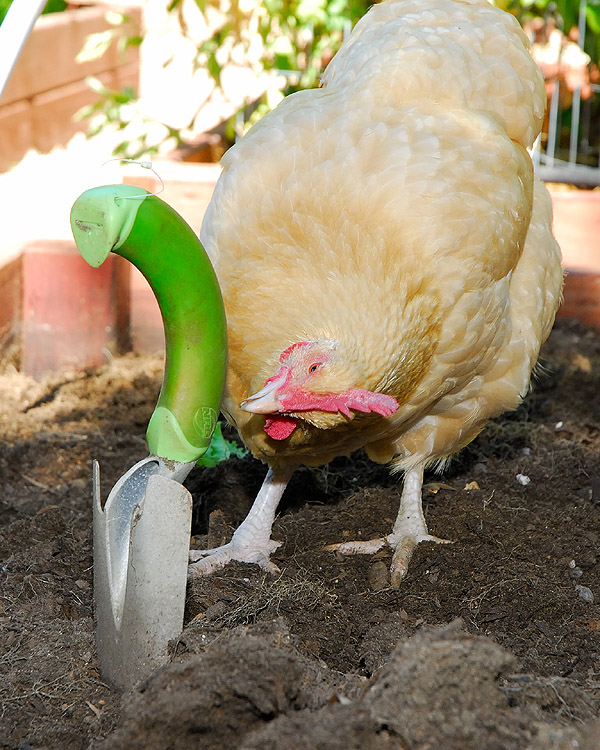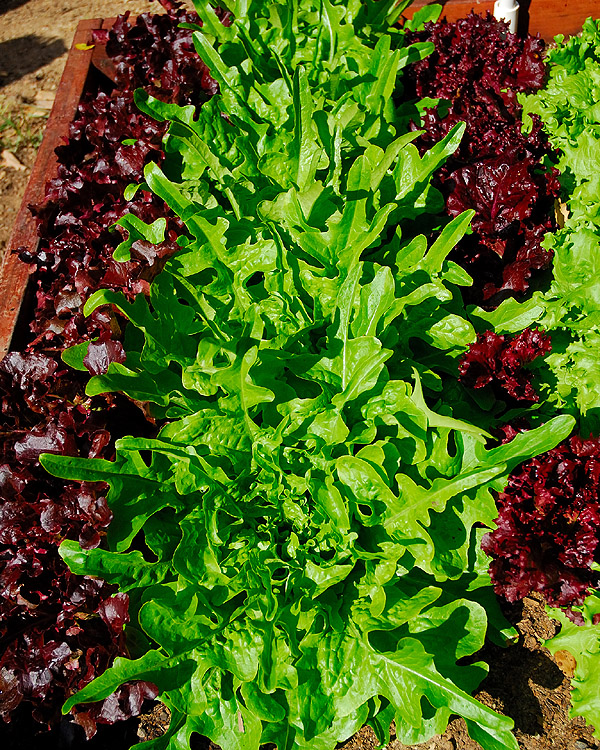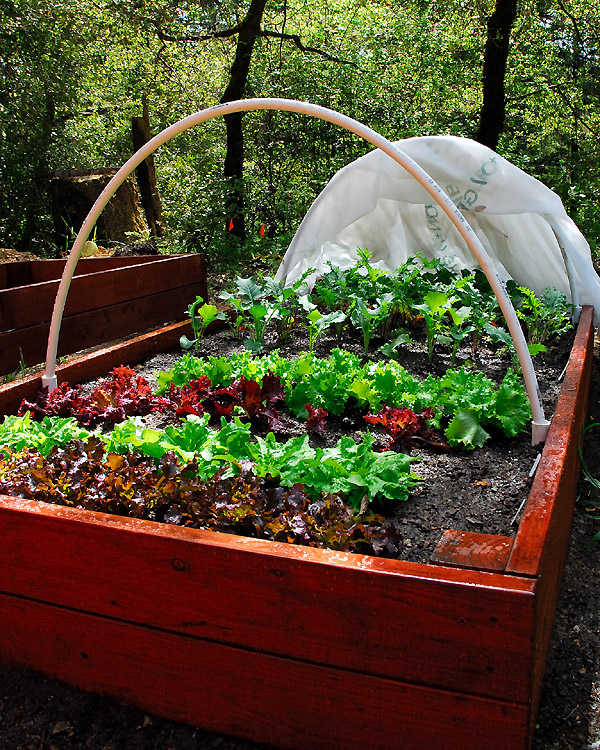The Kitchen Garden
The Kitchen Garden
We maintain an heirloom open-pollinated kitchen garden. In the fall of 2019 we constructed a brand new greenhouse within the garden for propagating seed, grafting, and overwintering sensitive plants. With lots of propagation bench space, we now have plenty of room to grow!
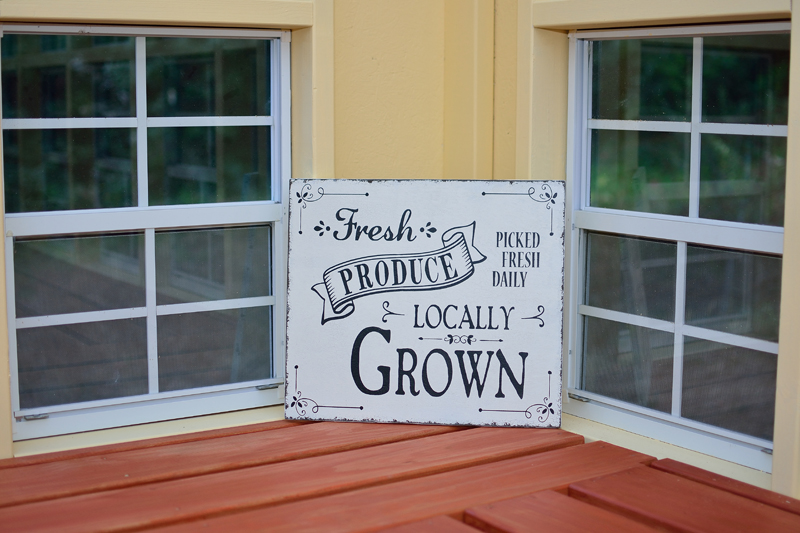
The heirloom open-pollinated edible garden is situated within easy reach of the farm garden, and filled from spring through fall with an abundant variety of fruit, vegetables, and herbs.
We start the majority of our plants from seed ourselves, and our herd of dairy goats, and poultry, help us to produce all of the soil amendants we need, directy on-farm. Due to a periodic overabundance of gophers that inhabit are soft rich soils, most of the vegetables and herbs are grown in raised beds that we’ve constructed from locally grown redwood.
There are so many heirloom varieties of fruits and vegetables that it’s impossible to grow them all, so each season we pick a few of our favorites to include in the gardens, but also leave a little room to try something new. This year there will be a few newcomers to the kitchen garden. For the first time we’ll be growing Dragon’s Tongue beans, Glass Gem Corn, and Winter Luxury pie pumpkins, in addition to a variety of heirloom tomatoes, eggplants, peppers, and summer squash.
One of the most important elements of any successful garden, is pollination! Throughout the edible gardens we inter-plant a variety of flowering plants and herbs to entice our honey bees, and native pollinators, to visit the garden beds. Nigella, Marigold, Caryopteris, Hyssop, Sage, Nasturtium, Calendula, Batchelor Buttons, and Rosemary provide nectar and pollen for the bees. As many of the flowering plants in the garden are also edible, they also provide garnish for salads and cheeses throughout the season.
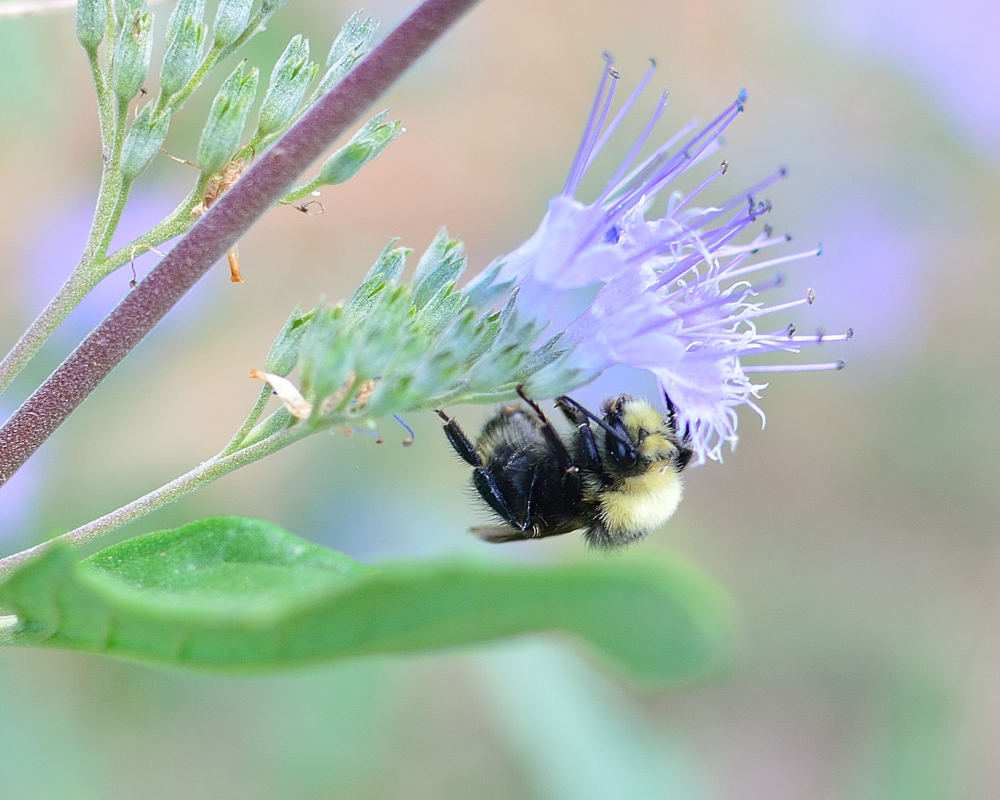
The 2020 Garden will include the following
Asian Greens: Komatsuna, Win Win Choy, Joy Choy, Mizuna (Green, and Purple), and Tatsoi
Beans (Bush): Dragon Tongue, Red Swan, Borlotto Di Vigevano Nano, Maxibel
Beans (Pole): Brauhilde, Scarlet Runner, Spanish Musica
Beets: Bull’s Blood, Chioggia, and Golden
Broccoli: Calabrese
Carrots: Danvers, and Scarlet Nantes
Chard: Golden, Fordhook Giant, Rhubarb Red
Cucumber: Homemade Pickles
Eggplant: Casper, Listada de Gandia, Little Fingers, Long Purple, Rosa Bianca, and Rosita
Endive: Très Fine Maraîchère
Gourds: Birdhouse, and Luffa Gourd
Kale: Dwarf Blue Curled, Nero Di Toscana, and Russian Red
Leeks: Blue Solaise, Carentan, and Giant Musselburgh
Lettuce: Forellenschluss, Gentilina, Green Rapids, Lolla Rossa, Red and Green Oak Leaf, Rouge d’Hiver, and Sanguine Ameliore
Mustard Greens: Garnet Giant, and Southern Giant Curled
Onion: Walla Walla, Cortland, Spanish Utah
Parsnip: Javelin
Peas: Oregon Sugar Pod II (snow), and Progress #9 (shelling)
Peppers: Anaheim, Ancho Poblano, Corno di Toro Giallo, Corno di Toro Rosso, Hinkelhatz, Jalapeño, Pepperoncini, Pimento de Padrón, Shishito
Potatoes: Butterfinger, German Butterball, Purple Majesty, and Russian Banana
Radish: Japanese Minowase Daikon, Cherry Belle, French Breakfast
Spinach: Bloomsdale
Sorrel: Red-Veined
Squash (Summer): Crookneck Early Golden, Striata D’Italia, Black Beauty, Golden Zucchini
Squash (Winter): Amish Pie, Musquee de Provence, Waltham Butternut, and Winter Luxury
Tomatillo: Verde
Heirloom Tomatoes: Argentina, Azoychka, Beam’s Yellow Pear, Black Pear, German Orange Strawberry, Pineapple, Russian Persimmon, Salisaw Cafe, Opalka, and Stupice


